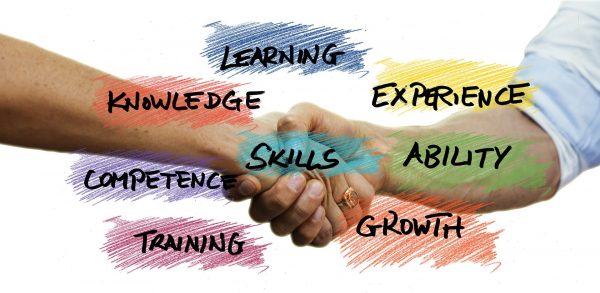Could a lack of mentoring be your Achilles heel?
Human resources • Industry matters
Principal engineer, Miltiadis Mellios (Miltos) joined the Ground & Water team in 2017. Originally from Greece, Miltos is a highly qualified geotechnical and structural engineer and has a key focus on professional development; ensuring the team is always broadening its experience and geotechnical know-how, ready to deliver a quality service. Nothing motivates Miltos more, than inspiring others in the industry. Here Miltos discusses mentoring in the workplace and makes no apologies for the odd classical reference!

One of the first records of a ‘mentor’ is found in Homer’s Odyssey. The Mentor, ‘a wise man’, is given the responsibility of educating Odysseus’ son, Telemachus.
Most business leaders would agree that mentoring is a key element of an organisation’s successful training and development plan. However, how many employees and employers look deeply into the key aspects that are involved in this process; and eventually construct a healthy environment for growth and prosperity, that will benefit the organisation as a whole?
What could be considered as some key requirements for establishing successful mentor-mentees relationships, are outlined below:
- Development of a relationship of trust – The establishment of an environment of mutual trust and building a relationship, are requirements before and during mentoring. The mentor should learn about the mentee’s educational background and experience and share information about his or her own background and experience.
- Definition of roles and responsibilities – The roles and responsibilities between the mentor and mentee need to be clearly defined. Active participation in the relationship is needed and both parties should be receptive to feedback. Mentors are expected to provide constructive feedback and mentees can be reflective of their actions. Open and respectful communication would be considered essential and should include active listening and value of each-other’s feedback.
- Setting up short and long term goals – Both parties will be benefited if short and long term goals are established. These can be a function of the general training and development path of the organisation, as well as focused on more personalised aspects.
- Collaboration in problem solving – Mentors should provide the opportunity to mentees, to identify issues and concerns and propose potential solutions. Collaboration and constructive discussions are a key element to a successful outcome and a great learning opportunity.
Mentoring & Training and Development
It is widely accepted that ‘mentoring’ embraces wider aspects of a working environment. However, one of the most direct connections would be the training and development process of individuals. It should be noted that although training might be considered in some cases a ‘sole responsibility’ for the mentor, best practice should be followed and the training mechanism of a well structured organisation should involve the sharing of collective experience between individuals, derived from different backgrounds, so that the best outcome is achieved and in the most efficient way.
 Benefits of Mentoring
Benefits of Mentoring
It is evident that mentoring in the workplace is a two-way road that benefits both mentor and mentee. In addition, for companies, it can help improve the quality of work, increase productivity, ensure long term employee retention and create a more positive work environment. As mentor and mentee develop their own relationship, they help create a positive company culture that combines the best qualities of each individual.
At Ground & Water, we take the needs and inclinations of individual team members very seriously and strive to establish a healthy working environment. Mentoring, training and development are core aspects of our everyday work, as they form the pillars that support future growth.
